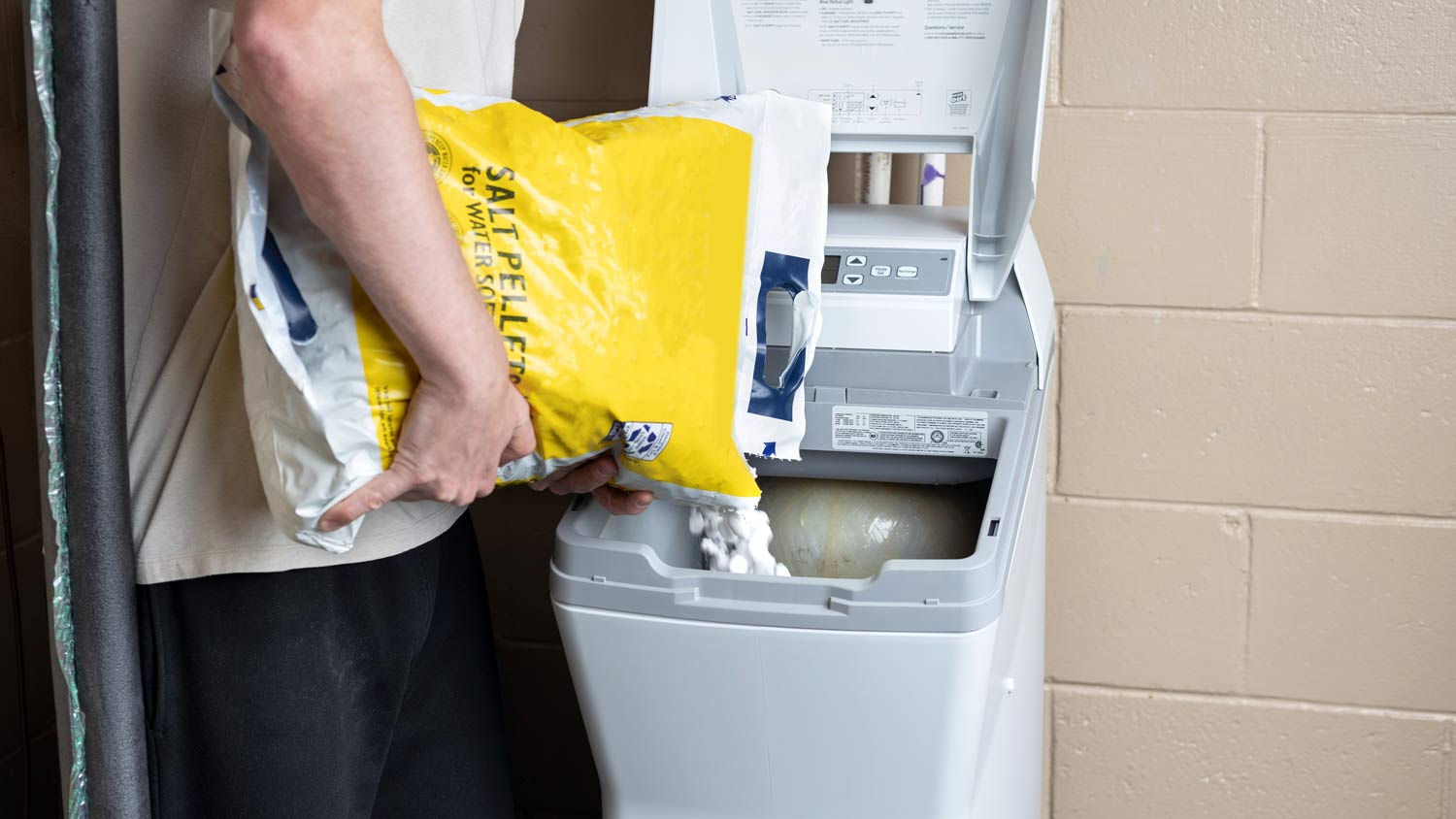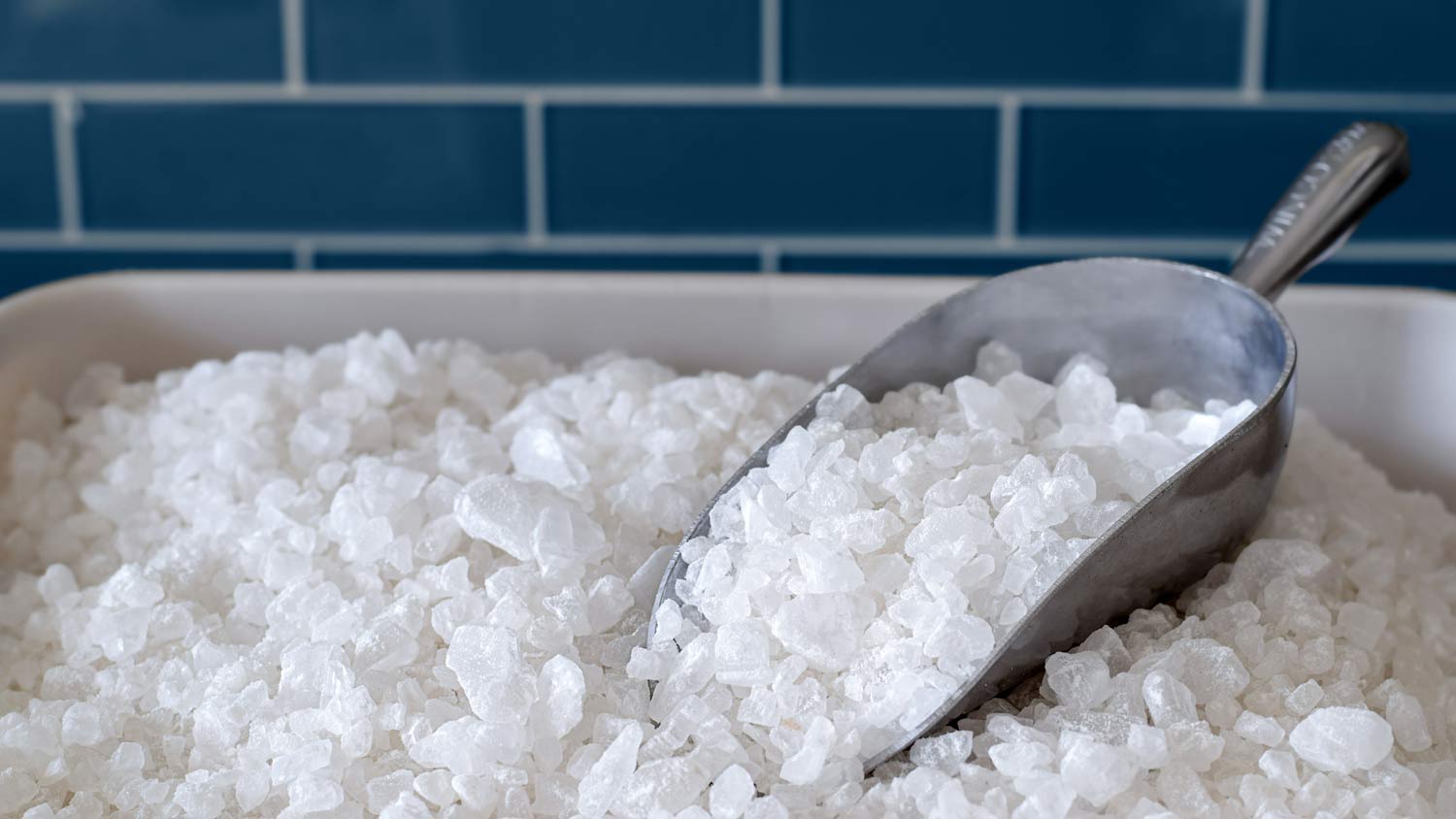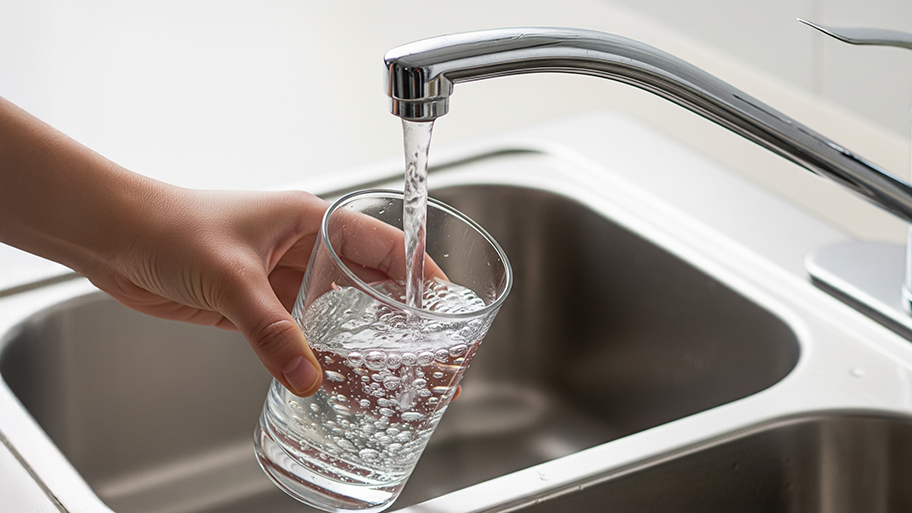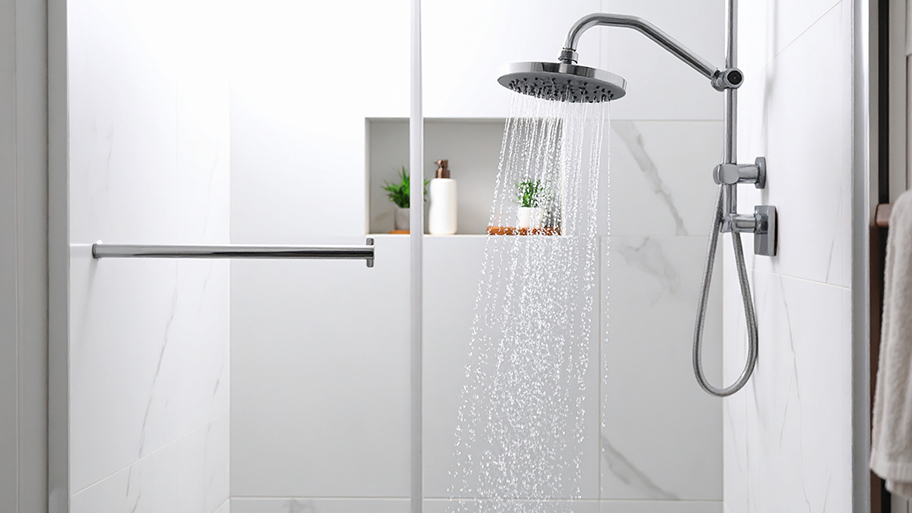
Wondering about water treatment system costs? Learn average prices, key cost factors, and ways to save on installation and maintenance for your home.
To salt or not to salt, that is the question


Water softener salts are made from sodium chloride in crystal or pellet forms.
Water softeners may also use potassium chloride as an alternative to standard salt.
Water softeners that use salt are more effective than salt-free systems but waste more water.
Salts cost $5 to $10 per 40-pound bag, or $50 to $70 for potassium chloride.
While it may seem counterintuitive to add salt to your home’s water supply, water softener salt is actually important if you want to get rid of hard water. But what is water softener salt, and how does it work to remove minerals from your water supply? Learn what this simple solution is and how it works as an essential part of your water softener.

Water softener salt is a product that goes inside the brine tank, one of the most important parts of a water softener. The brine tank sits next to the resin tank, where hard minerals, like magnesium and calcium, are removed from the water. Small sodium ions on the resin bead material inside the resin tank attract the minerals and swap places, making the water soft before it leaves the water softener and goes back to your home.
However, over time, the resin beads need their sodium ions replenished and need to get rid of the mineral buildup. When this happens, the resin tank pulls brine, or salt dissolved in water, from the brine tank during what is called a regeneration cycle. This helps replenish sodium ions on the resin beads while flushing away the used brine and excess minerals.
Water softener salt is most commonly made from sodium chloride, but you can find an alternative in potassium chloride for water softeners. While potassium chloride isn’t as common, you can also find several different types of it in crystal or pellet forms.
There are many different types of water softener salts to consider. Of course, before you purchase any salt products, make sure to check your water softener manual to see what type it recommends for your model. This can help you determine whether to go with water softener crystals versus pellets.
| Salt Type | Characteristics |
|---|---|
| Sodium chloride rock salts | Least costly but may have impurities |
| Sodium chloride solar salts | Fewer impurities but not good for humid areas |
| Sodium chloride evaporated salts | Fewest impurities but most expensive |
| Potassium chloride salts | Expensive but good for people limiting sodium intake |
Sodium chloride-based products are the most common, least expensive, and most widely available options for water softeners. You can use rock salts, which cost less than other types of water softener salts, but they may have impurities that can cause mineral buildup in your water softener. There are also solar salts, which have fewer impurities and ring up at a similarly low cost, but they may not be a good option for water softeners in humid areas. There are also evaporated salts, which are the purest option but also more expensive than solar or rock salts.
Then, there’s potassium chloride-based “salt.” This product isn’t actually salt, but it is an alternative for people who need to limit their sodium intake because it doesn’t add salt to your home’s water supply. It does tend to be more expensive and more difficult to find than traditional water softener salts. Plus, for people who need to limit potassium intake, regular water softener salts are the better option.
Salt-free water softeners, or salt-free water conditioners, use a descaling process to reduce buildup from the minerals in hard water. These systems change the chemical structure of the minerals in the water rather than actually removing the minerals. In comparison, water softeners that use salts or potassium chloride use ion exchange to actually remove the hard minerals, later flushing them away with brine.
The salt-free descaling process is efficient, saving water and electricity, but salt-free water softeners can be more expensive to install. Further, salt-free systems are not recommended for homes with very hard water or homes that rely on well water.
People with extreme sodium sensitivities should avoid softeners that add sodium to their water.

There are several benefits to using water softener salts if your home has hard water. Some of these benefits include:
Removes buildup-causing hard minerals from water
Costs less upfront than installing a salt-free water conditioner
Most effective at preventing mineral buildup in faucets and appliances
Water softener salts may not be the right option for every household. Some drawbacks of water softener salts include:
Creates wastewater
Requires refills once per month or two
Not recommended for people requiring low-sodium or low-potassium diets
Homeowners need to refill the water softener salts in the brine tank regularly since the brine is used frequently to replenish the resin beads. It’s best to check the salt levels in the brine tank once every four to six weeks and make sure the salt level is at least 25% of the brine tank.
You’ll need to refill the water softener salt once every six to eight weeks. The brine tank should have a fill line to guide you with how much salt to add, but if yours doesn’t, keep the tank filled halfway and leave the salt level no less than 4 to 6 inches from the top of the tank. Overfilling the tank can cause salt bridges, or clumps, to form, which can cause clogs and leaks.
To refill the water softener salts, you can purchase more salts at local home improvement stores or online. You can also schedule regular refills and other water softener maintenance tasks by hiring a local water softener installation company.
The amount of water softener salt you need will depend on your water softener model, your water hardness, and your household size. The average household needs 40 pounds of water softener salt per month to effectively soften water.
Water softener salts made from sodium chloride cost $5 to $10 for a 40-pound bag, meaning you’ll spend up to $10 per month to refill the salt in your water softener. If you opt for potassium chloride instead of sodium chloride salts, expect to spend about $50 to $70 per 40-pound bag.
If you don’t yet have a water softening or conditioning system and you’re looking to get rid of the hard water in your home, you’ll want to consider installation costs in addition to ongoing costs, like salt refills. Water softener installation costs $500 to $3,000 for a standard model, or about $800 to $4,000 for a salt-free water conditioner.
From average costs to expert advice, get all the answers you need to get your job done.

Wondering about water treatment system costs? Learn average prices, key cost factors, and ways to save on installation and maintenance for your home.

On average, a reverse osmosis water filter costs around $2,200, but there are a few variables that impact the total price. Learn about them in this guide.

Water softener repair costs can add up, but they’re almost always worthwhile. Use this guide to see what your project is going to cost before you get started.

What is a water filter and why do you need one? Here’s how they work and how to choose the best water filtration system for your home.

Discover how to choose a water softener with tips from our expert guide. Ensure your home has clean, soft water with the right system for your needs.

While not all symptoms of too much chlorine in water are cause for concern, there are times when you should call a pro. Get the details in this article.